

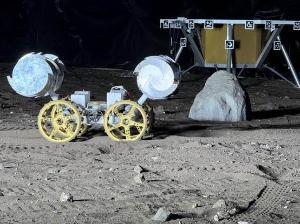 2024: NASA KSC Sabbatical human factors (HF) research: The first project focused on a Lunar Electrostatics and Dust Mitigation (LEDM) tool focused on developing methods to counteract the extreme challenges lunar dust poses for human exploration. Lunar dust, due to its abrasive and adhesive properties, poses risks to astronaut health, equipment, and habitats. The LEDM tool is an electrostatic prototype to remove dust from surfaces, advanced filters, and protective coatings to shield equipment and habitats. I created two LEDM Rubric and Scoring tools for use in HF assessments of the tools. One was a Current HF Assessment Rubric for use with the current prototype. The second one developed was a Future HF Assessment Rubric for use with future versions of the prototype that includes the HF requirements and future display for the LEDM tool. The Current HF Assessment was used to evaluate the current prototype design and identify recommendations for the next-generation prototype design.
2024: NASA KSC Sabbatical human factors (HF) research: The first project focused on a Lunar Electrostatics and Dust Mitigation (LEDM) tool focused on developing methods to counteract the extreme challenges lunar dust poses for human exploration. Lunar dust, due to its abrasive and adhesive properties, poses risks to astronaut health, equipment, and habitats. The LEDM tool is an electrostatic prototype to remove dust from surfaces, advanced filters, and protective coatings to shield equipment and habitats. I created two LEDM Rubric and Scoring tools for use in HF assessments of the tools. One was a Current HF Assessment Rubric for use with the current prototype. The second one developed was a Future HF Assessment Rubric for use with future versions of the prototype that includes the HF requirements and future display for the LEDM tool. The Current HF Assessment was used to evaluate the current prototype design and identify recommendations for the next-generation prototype design.
The second project was a study to design an effective control room with multiple displays for monitoring the In-Situ Resource Utilization Pilot Excavator (IPEx). This requires careful human factors assessment to ensure that operators can efficiently monitor, interpret, and respond to data from multiple sources. Control room operators were interviewed to obtain data for moving forward with the Next Generation IPEx Control Room/Facility design. There were eleven themes in the data identified, along with over 50 recommendations for the control room and facility (i.e., rest area, etc.). that will optimize operations for employees.
2021-Present: Management and Administration -FAA Center of Excellence (COE) for the Partnership to Enhance General Aviation Safety, Accessibility, and Sustainability (PEGASAS) – Principal Investigator/Site Director for FL Tech
2022-2023: Weather Information Representativeness and Decision Making (5/22-Present) - Principal Investigator, Study purpose is to perform follow-on work to the AWIP research project to further experiment with the usability and performance of Speech Recognition Systems (SRSs) and a prototype to improve GA pilot abilities to generate and disseminate pilot reports (PIREPs). Funding from the Federal Aviation Administration (FAA).
2019-2021: Augmented Weather Interfaces Project (AWIP) (9/19-12/22) – Principal Investigator, Study purpose is to provide minimum weather service recommendations, research data and functional prototypes for demonstration to industry regarding: 1) evolve augmented animation support for dynamic weather information content to support GA pilot knowledge, skills and abilities; 2) improve GA pilot abilities to generate and disseminate pilot reports (PIREPs), including the use of automated generation and non-typing interface interactions; 3) assess and calibrate pilot trust in creating PIREPs using automated and non-typing capabilities during dynamic and uncertain weather conditions; and 4) enable stable and scalable information architectures to support augmented interface designs information access using industry partnerships. Funding from the Federal Aviation Administration (FAA).
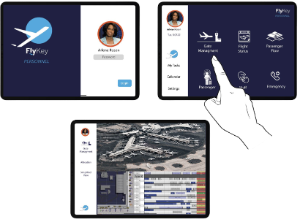 2021-2022: FlyKey (9/21-8/22) – Principal Investigator, Study purpose is to expand upon the first-place national team project for “Airport Cooperative Research Program (ACRP)” in the design of an Airport App. The team conducted an expanded stakeholder-needs mapping, created extended personas, reviewed ACRP studies and reports, performed a usability analysis of the FlyKey passenger application, created the design requirements from focus groups and interviews, held a stakeholder workshop, conducted a financial impact analysis and cost-benefit analysis, and developed a prototype for the FlyKey Personnel. Funding from The Virginia Space Consortium (through Transportation Research Board).
2021-2022: FlyKey (9/21-8/22) – Principal Investigator, Study purpose is to expand upon the first-place national team project for “Airport Cooperative Research Program (ACRP)” in the design of an Airport App. The team conducted an expanded stakeholder-needs mapping, created extended personas, reviewed ACRP studies and reports, performed a usability analysis of the FlyKey passenger application, created the design requirements from focus groups and interviews, held a stakeholder workshop, conducted a financial impact analysis and cost-benefit analysis, and developed a prototype for the FlyKey Personnel. Funding from The Virginia Space Consortium (through Transportation Research Board).
2020-Present: LogX Program: R&D Prototype Test and Evaluation Support (1/20-6/20) – Key Player, Study purpose is to explore innovative software and technologies that can leverage existing logistics information systems to enable more comprehensive, real-time supply chain diagnosis and prognosis of disruptions. Funding from the Defense Advanced Research Projects Agency (DARPA).
2018-2019: Aviation Integrated Risk Assessment and Accident Analysis for Leading Indicators (4/18-6/19) – Co-Principal Investigator along with Oak Ridge Associated Universities (ORAU), Study purpose is to analyze National Transportation Safety Board accident reports and create bowtie and incident analysis diagrams. Funding from ORAU.
2017-2018: Co-I and Lead on the Aviation Database Review. Federal Aviation Administration research, Contract # DTFAWA-16-D00003: Human Factors Considerations for Information of Varying Levels of Integrity, Reliability, and Security on the Flight Deck.
2017-2018: Psychosocial Effects of Social Media Restrictions on New Workers in Secure Environments (5/17 – 6/18) – Co-Principal Investigator along with Oak Ridge Associated Universities (ORAU), Study purpose is to explore the psychosocial effects of social media restrictions placed on employees at a secured facility. Funding from ORAU.
2016-Present: Airport Safety Database & Analysis (Phase I 5/16 – 9/16, Phase II 1/17 – 6/17 with a no cost extension until 6/18) – Principal Investigator, Study goal is to review and categorize accident and incident data in accordance with the Commercial Aviation Safety Team (CAST) and the International Civil Aviation Organization (ICAO) taxonomy. A secondary goal is to identify top airport safety risks by conducting analyses of accidents and incidents. Managed a 36-member team at three universities (FIT, The Ohio State University and Iowa State University). Funding from Federal Aviation Administration (FAA).
2015: Transfer of training for UAS operation – Research Team Member funded by ACITC.
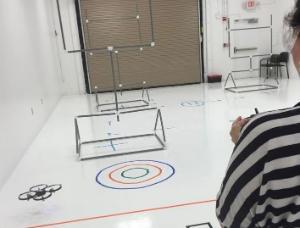 2014-2015: Research Team Member on the Safety & Human Factors Team funded to optimize human factors and safety aspects of flight training within the Turkish Airlines Flight Academy in Ayden, Turkey (multi-million-dollar contract with our university). Our team traveled to the flight academy in December 2014 and July 2015. My role was to conduct observations and interviews to perform a task and error analysis resulting in recommendations for safety enhancements to processes and systems.
2014-2015: Research Team Member on the Safety & Human Factors Team funded to optimize human factors and safety aspects of flight training within the Turkish Airlines Flight Academy in Ayden, Turkey (multi-million-dollar contract with our university). Our team traveled to the flight academy in December 2014 and July 2015. My role was to conduct observations and interviews to perform a task and error analysis resulting in recommendations for safety enhancements to processes and systems.
2011-2013: Activity Based Total Accountability (Phase II) – Principal Investigator and Director of the ABTA Institute (visit abta.fit.edu), Study to assess the level of transparency in State Web sites and the degree of usability to government accountability websites making information more meaningful. Federal Funding from the Small Business Administration.
2008-2009: Activity Based Total Accountability (Phase I) – Principal Investigator and Director of the ABTA Institute (visit abta.fit.edu), Study to identify activity-based costing data for all fifty states on multiple government activities. State Funding from the Florida Department of Education.
2007-2008: Effectiveness of Podcasts - Principal Investigator, Study to understand the effectiveness of podcasts as well as potential uses of podcasts in an academic setting. Funded by the Florida Institute of Technology Academic Information Technology Committee, $1,300 to hire graduate student support, purchase hardware and software, and provide incentive funds for study participants.
2006: Usability Study of Travel Sales Websites - Principal Investigator, Travel sales website usability study to identify international usability issues, accessibility issues, and recommendations for improvement of three travel sales websites (Expedia.com, Travelocity.com, and Orbitz.com). Funded by the Florida Institute of Technology Academic Information Technology Committee to hire undergraduate student support and provide incentive funds for study participants.
2004-2005: Process Optimization for Baker and Marchman Act Patients - Principal Investigator, Task and error analysis research study to improve the efficiency and safety in the treatment of mentally ill and substance-abuse patients. Funded by the East Central Healthcare Forum to provide a one-course release.
2004-2005: Web-Based Patient Referral System - Key Player, Evaluation Lead of task and error analysis research to identify a better process flow for patients transitioning from different continuums of care. Patient safety markers were also developed to assess healthcare processes. The effort was part of a larger effort to plan for the development of a web-based healthcare system to share patient records between nursing homes and hospitals. Funded by the Department of Health & Human Services (DHHS) Agency for Healthcare Research and Quality (AHRQ) to provide one course release and two student research assistants.
2001-2003: Human Factors Failure Modes, Effects and Analysis (HF-FMEA) Tool Development - Principal Investigator, Task & Error Analysis Project to develop a prototype tool that automates error analysis methodologies for the space industry and to perform four task analyses on hazardous processes at KSC. Funded by NASA Ames Research Center, NASA Headquarters, and NASA Johnson Space Center. The prototype tool portion of the project was given additional funding from NASA Headquarters to convert the prototype into a fully operational system in 2003.
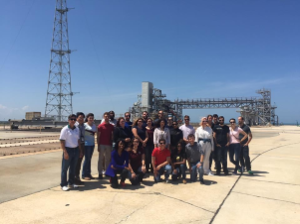 2001-2002: Spaceport Safety and Optimization Tool Development - Principal Investigator, Spaceport Safety & Process Optimization study to develop a working prototype of a safety simulation tool to identify safety and efficiency bottlenecks within program’s processes at the National Aeronautics of Space Administration (NASA). Funded by the NASA Kennedy Space Center (KSC).
2001-2002: Spaceport Safety and Optimization Tool Development - Principal Investigator, Spaceport Safety & Process Optimization study to develop a working prototype of a safety simulation tool to identify safety and efficiency bottlenecks within program’s processes at the National Aeronautics of Space Administration (NASA). Funded by the NASA Kennedy Space Center (KSC).
2000-2002: Study Manager, Human Factors & Ergonomics studies for the Space Shuttle Industrial Engineering for Safety (IES) Program. IES was a $20 Million Program with $5 Million of funds reserved for studies which was funded by the NASA Johnson Space Center.
2025: AAM
2022: Submitting PIREPs when flying a Redbird Jay Simulator to identify human error and how to eliminate, reduce, or mitigate the error and error effects
2021: Potential Factors in the Decision-Making Process of Selecting a Collegiate Flight School
2021: Assessing the Usability of a Desktop Simulator for Training Instrument Flight Rules (IFR) Procedures
2018-2020: Distractions with Passenger Safety Briefings
2013-2014: Social media impact on attention span
2013: Password Security Practices and Impact on Information Security
2011-2012: Privacy reliant on Usability in Social Networks (Phase 2) – Study of privacy settings and usability in Facebook and Google+
2010: Privacy reliant on Usability in Social Networks – Study of usability and privacy settings and usage of Facebook settings
2006-2007: Usability Study of iTunesU websites - Usability testing of three different university iTunesU websites to evaluate navigation features. The first stage was conducted in Fall 06, serving as a preliminary study, to the second stage conducted in early Spring 07
2005-2006: Usability testing of travel websites. The first stage, conducted in Spring 05, identified usability issues affiliated with performing simple tasks on travel sales websites. The second stage was conducted in Fall 05 & early Spring 06 to identify usability issues affiliated with performing complex tasks on travel sales websites. The third stage of the study was funded by ACITC and listed under sponsored research.
2005-2006: Human & Medical Error Taxonomy – Developed taxonomy of healthcare-related errors and error sources
2002-2003: Doctoral research in the “Development of Human Factors Password Guidelines for Authentication with Passwords.”
Our lab has performed funded research from the following organizations:
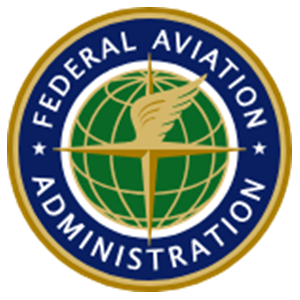
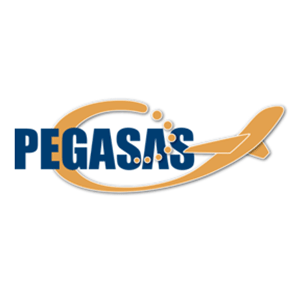

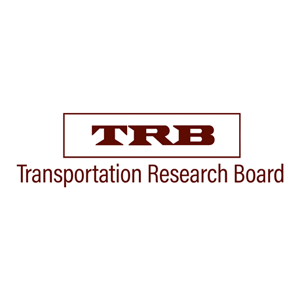
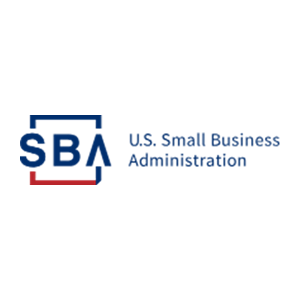
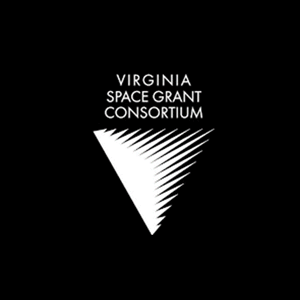
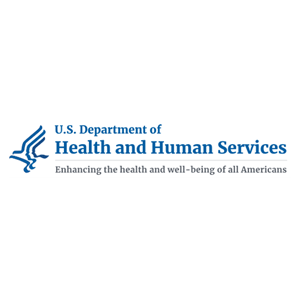
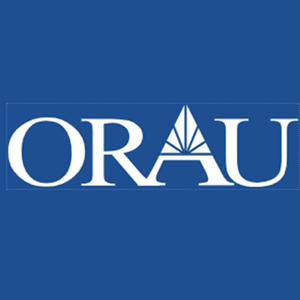


© Florida Institute of Technology, All Rights Reserved